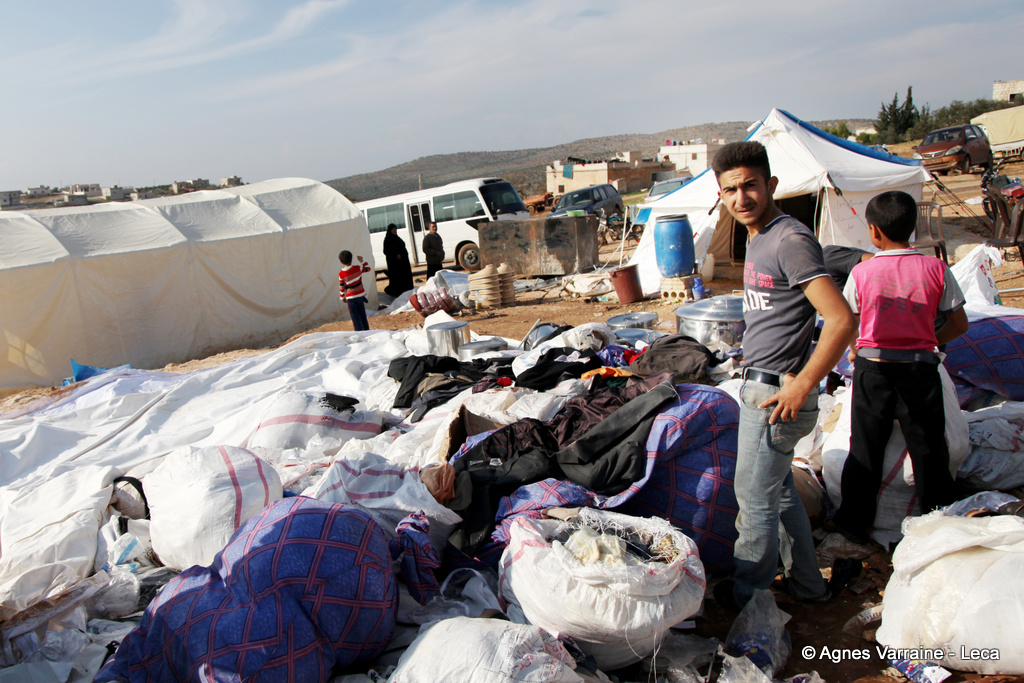NGOs welcome unprecedented step towards increased aid in Syria

This week’s United Nations Security Council resolution, which directly authorizes UN agencies and their implementing partners to deliver aid across Syria’s borders and conflict lines, is a welcome and unprecedented further step towards ensuring millions of people in Syria get the humanitarian assistance they desperately need. The consensus shown by the Security Council in passing this resolution is commendable; it must now lead to a massive increase in aid to those who need it.
According to the UN, the number of Syrians in need has skyrocketed to 10.8 million. Nearly half of these – some 4.7 million – are in areas that are difficult or impossible to reach; an increase of over a million people since the Security Council passed resolution 2139 in February 2014. While the responsibility to ensure the population receives assistance lies with parties to the conflict, neighbouring countries and the international community, the implementation of the resolution is a test of the Council’s credibility. For millions of women, men and children, it could be a matter of life or death.
The UN’s humanitarian agencies should seize this opportunity by working with humanitarian non-governmental organisations (NGOs) to reach the 4.7 million people in hard-to-reach areas. To support the existing work of humanitarian actors already active on the ground, we call on the UN to:
- Ensure the application of the resolution is in line with its wider intent of safe cross-border and cross-line access by the UN and NGOs to reach people in need of humanitarian aid and assistance.
- Scale up its support for NGOs that are already delivering aid across borders. In particular, we urge the UN to make sure that no restrictions are placed on NGOs in their use of the most expeditious routes – across any and all border crossings – for their aid deliveries.
- Work with all humanitarian actors to create and implement an effective system of joint planning and information-sharing to ensure that existing humanitarian operations can be expanded, not duplicated or undermined. Specifically, we ask the UN to involve international NGOs in all humanitarian fora and planning discussions in Damascus and elsewhere.
- Undertake needs assessments jointly with implementing partners, including with NGOs operating in areas where the UN has to-date been unable to reach.
This resolution must pave the way to further action. The demand for rapid, safe and unhindered humanitarian access for UN agencies and their implementing partners is just one of the provisions of the already existing resolution 2139. The Security Council must not lose sight of its previous demands; including that parties must cease the indiscriminate employment of weapons in populated areas, respect principles of medical neutrality, and demilitarize schools, hospitals and other civilian facilities. While cross-border access is essential, the Council’s demand that all parties to the conflict remove restrictions to humanitarian agencies operating across lines and in government areas must also be realized.
We have yet to see a diplomatic breakthrough transform into a humanitarian breakthrough that has a real impact on the ground for Syrians caught in this deadly conflict. The Security Council is responsible for ensuring that its words are translated into meaningful action. It is time that Council members lived up to that responsibility and pressed all parties to the conflict to respect international humanitarian law. The price of failure will be more lives lost and further untold suffering.
Signatories:
1. Alliance for Peacebuilding
2. Al-Khatim Adlan Centre for Enlightenment and Human Development (KACE) 3. Andalus Institute for Tolerance and Violence Studies
4. Arab Program for Human Rights Activists (APHRA)
5. Arab Coalition for Sudan (ACS) 6. Arab NGO Network for Development (ANND)
7. Arabic Network for Human Rights Information (ANHRI)
8. Broederlijk Delen
9. Center for Civilians in Conflict
10. Center for Victims of Torture
11. Christian Aid
12. Commonwealth Human Rights Initiative (CHRI)
13. Doctors of the World / Medecins du Monde
14. Global Centre for the Responsibility to Protect
15. Global Communities
16. Handicap International 17. Human Rights and Democracy Media Center (SHAMS) 18. Human Rights Information & Training Center (HRITC)
19. Human Rights First Society
20. Human Rights Now (HRN)
21. Human Rights Watch
22. International Rescue Committee
23. Islamic Relief
24. Norwegian Refugee Council
25. Oxfam
26. Pax Christi Flanders
27. Pax Christi International
28. Physicians for Human Rights
29. Save the Children
30. Sudan Human Rights Monitor (SHRM)
31. Union des Organisations Syriennes de Secours Medicaux (UOSSM)
32. United to End Genocide
33. World Vision
34. Zarga Organisation for Rural Development (ZORD)